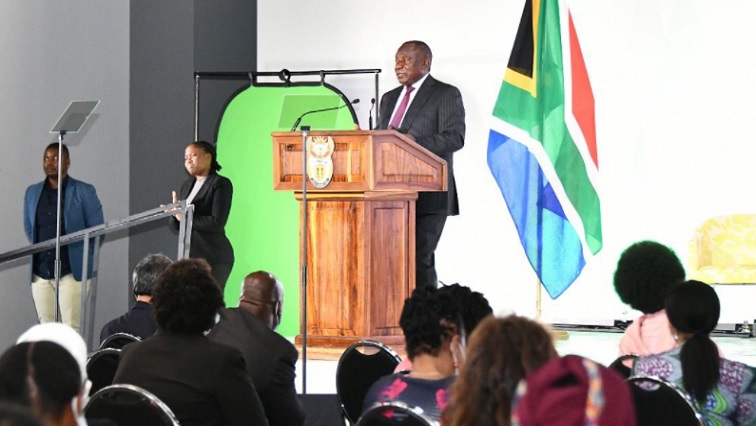President Cyril Ramaphosa has called on the public and private sectors to create ecosystems that will help drive the meaningful participation of women in the economy.
The President says the economic empowerment of women does not only reduce their vulnerability to abuse, but it contributes to the equitable and inclusive growth of the economy.
He was delivering a keynote address at the inaugural Women Economic Assembly in Sandton north of Johannesburg.
Ramaphosa says government will move fast to ensure that its 40% preferential procurement target for women-owned businesses is achieved. The President says women are virtually absent as owners in key industries like the steel sector, energy, agriculture, and mining.
He says that needs to change.
“We must establish an ecosystem of support for female business owners because one of the problems that women have is that they have no access, they no knowledge, they have no way of knowing how to get assistance. We should create that ecosystem so that it becomes the order of things so that women are able to have easy access to everything, markets, funding, assistance to run their businesses.”
President Ramaphosa’s full address:
Board Chairperson of the Industrial Development Corporation, Busi Mabuza says access to supply chain opportunities is a game-changer for women-owned businesses. She says the IDC has offered cumulative funding of just under R12 billion to women-owned businesses in the current financial year.
“Our current loan book suggests an increase, and this is very pleasing, increasing shift by women entrepreneurs towards owning larger businesses as indicated by the significant rise in the proportion of women deals over R5 million. The average transaction size from women entrepreneurs stands at a pleasing R35 million.”
Co-Chair of the Women Economic Assembly Co-ordinating team, Futhi Mthoba, says there is a need for specialised training and skills development for women which will focus on the full scope of industry skills.
“It will take a specific intervention, targeted funding, and strong political will to maximise these opportunities. The barriers that women face necessitate specific targets to inform how we measure and track progress. Women in textile highlighted the fact that the master plan has clear objectives in the value chain of growth and development for women senior managers but it is silent on ownership.
Ramaphosa says The Women Economic Assembly should also seek to rebuild township and rural economies in an inclusive manner.


